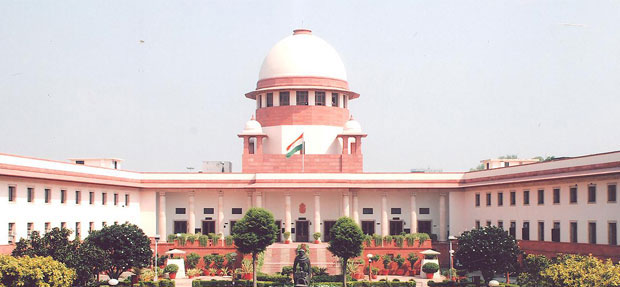Predilection Over Principle
Supreme Court of India
On 11 December 2013, the Supreme Court of India overturned one of the landmark judgments of the Indian judiciary, the Delhi High Court’s Naz Foundation vs NCT, Delhi. In the days that have elapsed since the judgment was declared, it has already gone down in public discourse as one of the Supreme Court’s most reviled decisions, one that masks prejudice and is full of logical inconsistencies and in one fell swoop, takes away everything that the Delhi HC had conferred on sexual minorities. The SC denied not merely the right to perform same sex acts but also their status as minorities, describing them as “minuscule”. It has ruled as “not proven” the terror and torture they undergo at the hands of police, and held that theirs was not a complaint against denial of identity rights but an unsustainable plea for immunity for the performance of acts contrary to “nature”.
The Court, while recognizing that pre-constitutional laws like Section 377 of the Indian Penal Code (IPC) can be declared void if they are inconsistent with the Constitution and to the extent they abrogate fundamental rights, goes on to invoke the principle of presumption of constitutionality, stating that that principle applies to pre-constitutional laws that have been adopted by Parliament. The Court bases its determination of a presumption of constitutionality in the present matter on the fact that the legislature has had a chance to amend the law but has not done so far.
What the Supreme Court ignores is the understanding of discrimination as a systemic issue of dominance and subordination. In past judgements, the Court has identified disadvantaged groups, has found that caste is a dominant factor for determining backwardness or the traditional cultural roles of women in society perpetuate discrimination (Ashok Thakur, Indra Sawhney and Anuj Garg cases) and has concluded that provisions of law must not uphold such social prejudices. However, in a blatant case of abdication of duty in the Naz case, the SC has reverted to a notion of equality that is satisfied with the symmetric application of law, regardless of its impact on vulnerable minorities.
Increased discretionary space, imprecise rights, unclear obligations, and fuzzy principles lend themselves to judgements based on predilections rather than principle. And these perverse predilections are quite discernible. In not applying its own precedents on capital punishment in the Devendra Singh Bhullar judgement, the SC has surrendered to public opinion, its role as the final arbiter in matters of the gravest import – the life of a citizen. The Court, given the kinds of issues it interests itself in and takes ownership of, is perceived as consisting of middle-class intellectuals, and therefore as more receptive to others of their ilk, certain social and value preferences (the right to a clean environment over the right to livelihood). The perception of the judiciary as middle class intellectuals with middle class preferences for fewer slums, cleaner air, has in itself silenced certain voices. The courts are unlikely to be moved on behalf of the urban poor, but they are likely to be persuaded on nursery school admissions and protection of monuments. The fact that predilection may prevail over principle is deeply troubling, as it casts a shadow over the legitimacy of the courts. It is inevitable that a judge’s social and value preferences play a role in the decision-making process. However, the twin principles of judicial self-restraint and the law itself, are supposed to temper this tendency. This has clearly not happened here.
Meanwhile, the review petition against Naz-2 has been denied by the Supreme Court. The BJP and several parties like the Samajwadi party have come out in support of this judgement, using the specious reasoning of these acts being “unnatural” or homosexuality being antithetical to that empty, yet oft-repeated signifier which is “Indian culture”. Given the political climate and the likelihood of Mr. Modi forming the next government and the likes of Ramdev campaigning for BJP (who claims to “cure” gayness), it is highly unlikely that Art. 377 is going to be repealed by parliamentary legislation in the near future. The specter of criminality will therefore, continue to loom insidiously in the bedrooms of consenting adults for years to come, because a two-judge bench was in the unseemly rush to appease the delicate sensitivities of the majority, to foist a retrograde Victorian morality on the internet generation, to render void years of tireless activism by rights activists, and all this under the shameful veneer of rediscovering its love for Tocqueville’s separation of powers principle. It’s dereliction of constitutional duty.
Ashish Kashyap graduated with a Masters in Computer Science from IIT Madras. He spends his time wishing he could write like Milan Kundera.





